Booker T. Jones has had an astounding career in music, as part of Booker T. & the M.G.’s and beyond.
With the M.G.’s, he had hits in the 1960’s with instrumentals including the timeless “Green Onions”, “Hang ‘Em High”, and “Time Is Tight”. The band also backed an amazing collection of artists on the legendary Stax Records, such as Otis Redding, Sam & Dave, and Albert King.
Jones also co-wrote notable songs for other artists including “Born Under A Bad Sign”, “I Love You More Than Words Can Say”, and “I’ve Never Found a Girl (To Love Me Like You Do)”. Moreover, he produced records by Willie Nelson, Bill Withers, and Rita Coolidge, and he played with musicians including Stephen Stills and Bob Dylan. Booker T. & the M.G.’s were inducted into the Rock and Roll Hall of Fame in 1992, and Jones received a Grammy Award for lifetime achievement in 2007.
This interview was done by phone on 8/8/13 for a preview article for the Memphis Music Fest at the Granada Theatre in Santa Barbara on 8/23/13. (Piper Ferguson photo)
Jeff Moehlis: What can we look forward to at the upcoming concert in Santa Barbara?
Booker T. Jones: I’m doing the concert with the bandleader who is someone who I was practically a baby with, James Alexander. He was a member of the original Bar-Kays, who were sort of our proteges at Stax in Memphis. We’ve worked together maybe over a fifty year period, since the early Sixties.
What I really like to do is to do a gamut of music from the beginning to the current. I have a new album out that’s called Sound The Alarm, and I want to do a couple of songs from that. Plus I love the original standards that I did with the M.G.’s – “Green Onions”, “Time Is Tight”, those kinds of things.
JM: When you look back on the many recordings that you played on for Stax Records, are there a few that stand out to you?
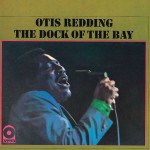
BTJ: Yeah, there are many that stand out to me. There were dynamic experiences, for lack of a more descriptive word, with Otis Redding recording “Try A Little Tenderness”, “(Sittin’ On) The Dock of The Bay”. A super dynamic moment with Albert King recording “Born Under A Bad Sign”. My initial Stax experience with Rufus and Carla Thomas when I was playing baritone sax on their song “Cause I Love You”. And the first time I played Hammond organ at Stax, with William Bell on his song “You Don’t Miss Your Water”. Those were special moments for me.
JM: How did the song “Green Onions” come together?
BTJ: That was a song that I had played on piano. But you know, as a young boy taking piano lessons I became enamored and enthralled with the Hammond B3 organ which was sitting in my teacher’s dining room. I was able to get some lessons, but I never dreamt I would get to play it at a recording studio. But I took lessons anyway, and got a paper route to pay for the lessons. Of course there was a pipe organ at the church. But I became an organ fan when I heard Ray Charles playing “One Mint Julep” on the radio. I heard that sound, and I thought “Wouldn’t it be great if I could do that with my life?” If I could make a sound like that.
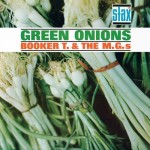
So it just turned out that there was a Hammond M3 organ in the studio on one particular Sunday afternoon when we had some free studio time. Of course we were the session band, the backing musicians. And we played a blues on that little instrument, the Hammond organ, and needed a B-side for the blues. And the B-side ended up being “Green Onions”. It just turned out that way.
JM: It sounds like that was very spontaneous. Was that typical of how the arrangements for the songs for Booker T. & the M.G.’s and the other artists came together?
BTJ: Yes and no. Sometimes they were predetermined arrangements. “Green Onions” was one of the more spontaneous ones.

JM: You mentioned Otis Redding. Could you tell me a little bit about performing with him at the Monterey Pop Festival?
BTJ: The Monterey Pop Festival… that was a culmination for us of a tour that we had done in Europe. We had done a number of successful dates, and had surprised ourselves and surprised our audience with the intensity. But it was also the beginning of Otis and us being accepted in America by a wider audience, that night in Monterey. A very special night, and an emotional moment.
JM: In addition to Otis Redding, one of my favorites from Stax Records is Sam & Dave. What was it like working with them?
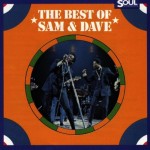
BTJ: Well, you know, they ended up calling Sam & Dave “Double Dynamite”, and there was a reason for that. They were explosive onstage. They were great in the studio, guided by Isaac Hayes and David Porter most of the time. The studio recordings were structured and they were great, but the stage performances were structured and then unstructured. So it was something to witness, both from on the stage and from the audience. Their timing was so tight, it was like a Swiss watch. The movements that they made together, and just the intuition that they had with one another about how they would move and how they would sing. It was amazing.
JM: Can you reflect on the legacy of Stax Records?
BTJ: Stax had its place in society, like Motown had its place, I feel. It was an equal influence. The music was so important, I don’t think you could even measure it. Songs like “I’ll Take You There” from The Staples Singers, songs like Johnnie Taylor’s “Who’s Making Love”, songs like my “Green Onions”, and Otis Redding’s “(Sittin’ On) The Dock of The Bay”, the blues from Albert King. Those became a soundtrack for a whole generation of people to live by for ten years. Or actually let me make that fifteen years because it went on with The Soul Children, and it went on with Isaac Hayes. It was huge, and I think it was necessary for the society to grow and to have its definition.
Stax played a huge role, not only with the music but with the financial donations that it made to the communities all over America, in Chicago, Washington DC, Memphis, and cultural donations in terms of how people talk, and how people dressed. I just don’t think it was measurable, to tell you the truth.
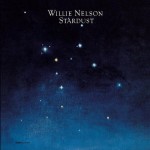
JM: In the 1970’s you became more involved with rock and country music. One album that stands out to me is Willie Nelson’s album Stardust, which you produced. What are some of your thoughts or memories about making that record?
BTJ: Well, you know, I think it was a special moment the day that I looked down… I had an apartment on the beach in Malibu, and I looked down on the beach and there was a fellow with a lot of long red hair running down the beach. And I thought to myself, “That looks like Willie Nelson.” I was sure it wasn’t Willie Nelson, but I just went to see. Turns out it was Willie Nelson! I introduced myself, and we became friends.
I think that was a turning point in his life and my life, too, because we had so much in common musically. For us to come together, it was almost like meeting the M.G.’s at Stax in Memphis. Because we had common ground. We both loved Hoagy Carmichael, and the songs that he wrote. That was our starting off point, with the song “Stardust”. And we realized how much we enjoyed playing together, and went into the studio and recorded that album. It was like nothing that the country music world had ever heard before. Just getting that album recorded and put out was a milestone.
JM: Willie, of course, just turned eighty. Do you think you’ll be out there, still playing music when you’re eighty?
BTJ: I hope so! I’m gonna try [laughs].

JM: You mentioned your new album, Sound The Alarm. Can you tell me a little more about that?
BTJ: Sound The Alarm is modern Booker T. If I had stayed at Stax, I think this is what I would’ve evolved into. I think we would’ve brought in people like Luke James, and Anthony Hamilton, and Estelle. Ben Harper would definitely have been a signing if I had been running the label at the time. Well, I basically am [laughs]. Along with some old traditional music that I played. My son Ted is playing blues like I played when I was his age, at age eighteen down on Beale Street in Memphis. And Gary Clark, Jr. is someone I would’ve brought in, because he’s just a great talent from Austin, Texas. So yeah, it’s Stax rejuvenated. It’s Stax the way I would have it.
JM: What advice would you give to an aspiring musician?
BTJ: Well, I can only advise what I do. And what I do is I try to be consistent with the practice. I still practice the same scales that I practiced when I was maybe twelve years old. I still practice them every day.
And to have belief and faith in yourself. That’s the hard part, to try to believe that what you’re doing is OK and good, even though maybe it’s not successful at some point. But believe in yourself. That’s what you’ve got to figure out.
JM: Any thoughts you’d like to share?
BTJ: When I get to speak to the public, the main thing I want to tell each individual and each person is thank you for paying attention to my music, and for being interested in Booker T. and what I have to play and what I have to say. Because I couldn’t do this if people didn’t pay any attention to it. So, it’s basically thank you for all the fifty years that people have spent their money on my product, and just listened. So my message is, thank you.
JM: And on behalf of your audience, thank you! My last question, where are you speaking to me from?
BTJ: Right now I’m at Lake Tahoe, Nevada. I have a house here, and it’s nice. It’s 6500 feet, if I sound like I’m out of breath [laughs]. It’s beautiful here.

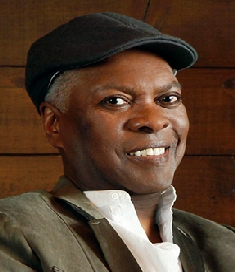
Discussion
No comments for “Interview: Booker T. Jones”